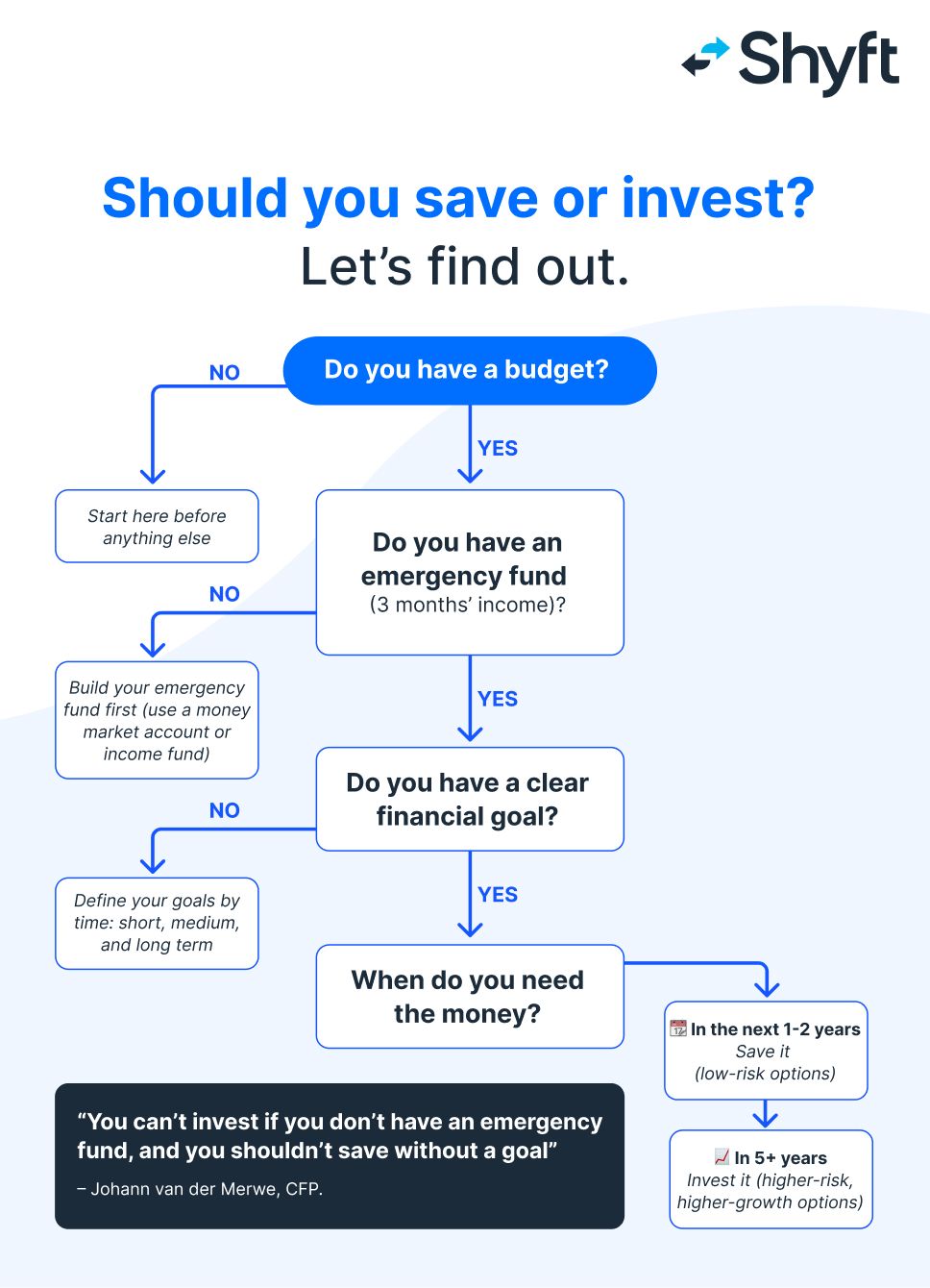
Have you been thinking about getting your money to work harder for you? Whether you’re just starting to save or ready to explore investing, figuring out how much of your income to set aside can feel a little daunting.
While there are many rules of thumb about how much you should be saving, Johann van der Merwe, a certified financial planner and executive wealth planner at Standard Bank, says no two individuals save the same percentage of their salary.
However, he says it’s generally accepted that you must aim to save about 20% of your income. “And the earlier you start saving, the more should go towards savings initially,” he says.
So, how should you start your savings and investment journey?
Johann says the first thing everyone needs to do is have a budget. “Once you establish your budget, you can clearly see how much you can save or invest.”
This is where the 50/30/20 budgeting guideline can come in handy.
“The first 50% makes up your fixed costs. These are generally debit orders, so this would be your insurance, medical aid, perhaps school fees, if you have children, all those kinds of things,” Johann says.
“Next is the 30%, which is your variable and unforeseen expenses. This would include groceries, entertainment, and things that change slightly every month. You’re not exactly sure how much you will spend on them, but they are what you usually spend every month.
“And the last 20% would be saving and investing towards your financial goals. Of that 20%, which percentage goes to saving or investing will depend on your life stage and financial bills,” he adds.
Prepare for the curveballs
He then recommends building an emergency fund as the next most important step.
“When you start saving early on, it’s important to first build up that emergency fund and then think about your longer-term investments,” he says.
“The reason for an emergency fund is exactly what the word implies. You don’t have to incur debt whenever you have an emergency, whether it’s medical, fixing your vehicle, or whatever the case might be.”
He recommends building up savings to at least three months’ salary as an emergency fund.
And what’s the best place to put your savings and emergency fund? Johann says a money market account because it offers the highest interest rates and allows you to access the funds on short notice.
“Perhaps the only other option could be an income fund, so a very conservative unit trust, which generally has access within about 24 hours. I don’t necessarily like fixed deposits because they don’t serve the purpose of emergencies.”
He adds that you should set up a long-term debit order for this account.
After the emergency fund, what’s next?
Now that you’ve got an emergency fund, it’s time to think bigger: investing for the long term. But before you can pick which vehicles to invest in, you must figure out your financial goals.
“Financial goals are probably the most important thing when it comes to investing, because they give us a term for the investment,” says Johann.
He says short- to medium-term goals are generally savings, with long-term goals being investments.
“We do it that way because investing can be volatile, but over the long term, that is where you will get the highest returns, giving you the best results later in your life.”
He adds that with short-term goals, you can’t take as much risk because if, for example, you want to buy a house in a year, you need to have a good idea of what you’ll have in your bank account when you purchase that property.
“So the term of your goal is extremely important, and it’s up to every person to decide which goals are more important.
“And it’s really a give and take. Unfortunately, we can’t save towards everything we want, because we also have to live our lives on a daily basis, but understanding your investment goal is crucial before deciding where to invest.”
Financial goals sorted; where to from here?
Now you can explore investment vehicles.
Johann says when it comes to investing, “my biggest thing is determining what the goal is, what are we trying to achieve? And then, based on that, it’s really easy to allocate funds to the correct products.”
He says unit trusts, which have a more aggressive or long-term risk profile, are a good investment option.
If you aim to invest for retirement, you can set up a retirement annuity.
“You can also use your Shyft account, buy some US dollars and invest in multiple ETFs, but be sure to speak to your financial advisor before you do that,” he says.
Keep checking in with your money
Johann advises automating your investment contributions with a monthly debit order so your investments grow without you having to think about it.
He also encourages revisiting your investment strategy at least once a year or when you experience a major life event, a change in your life, or a change in your financial goals.
As for your budget, check in more regularly. “When times are tough, or when expenses rise, understanding your budget will help you decide what is more important to you. So, is your financial long-term stability more important, or short-term wants like, for example, Uber Eats, Shein, playing the Lotto every week, or whatever the case might be?
“If you know your budget, you’ll be able to prioritise what is important to you,” he says.
Still wondering if you should save or invest? Use this flowchart to get an idea:

Looking for more tips on how to save and invest? Read this article on the new rules for saving, or listen to this Private Lens podcast on ways to grow and protect your generational wealth.
The views and opinions shared are for informational purposes only. They are not intended to serve as investment advice and do not represent the views or opinions of Standard Bank. This information should be used as a starting point for generating investment ideas, and should not be relied upon as the basis for making investment decisions. The Standard Bank of South Africa Limited will not be responsible for the results of any investment decisions made based on the views provided.